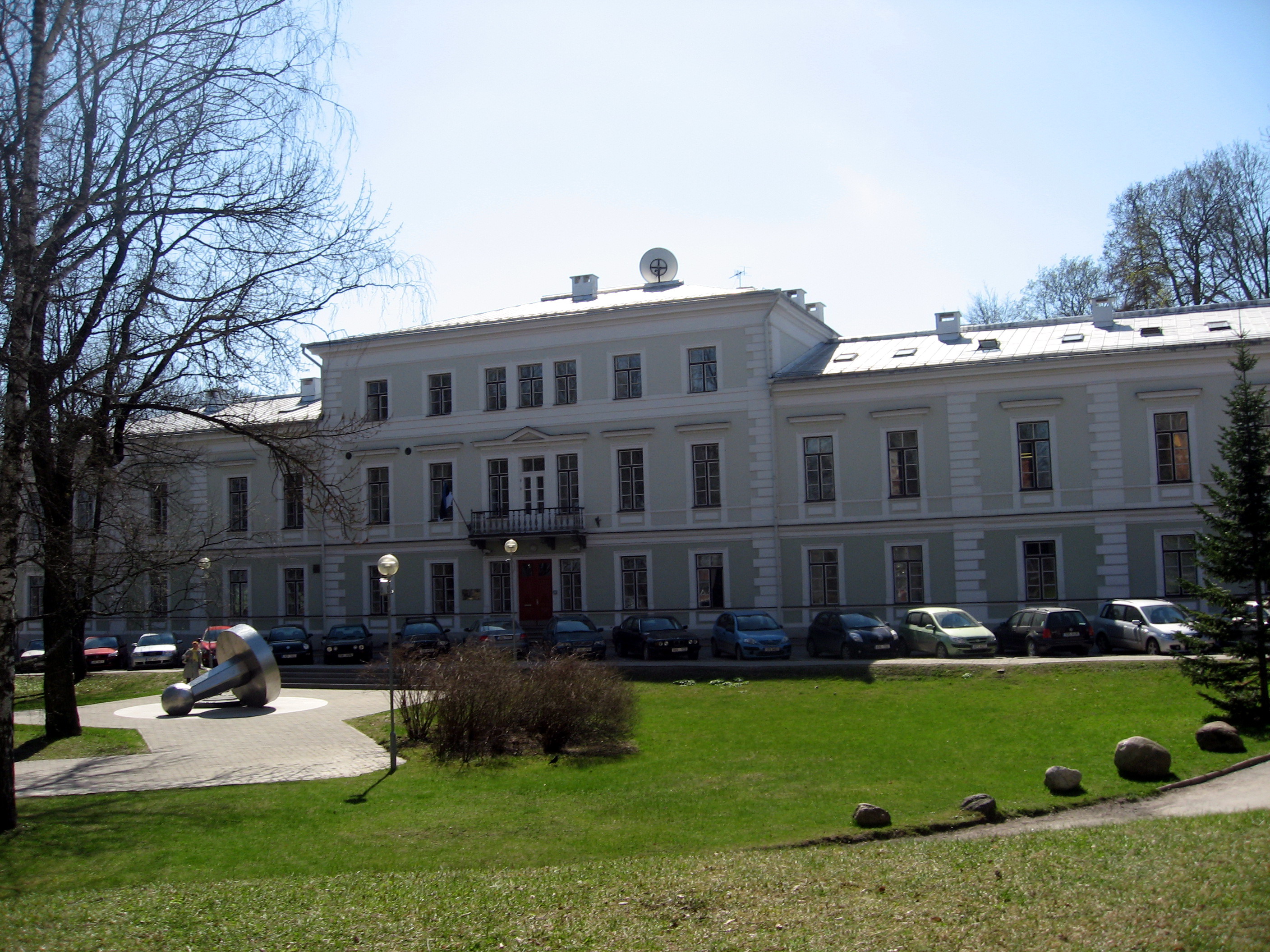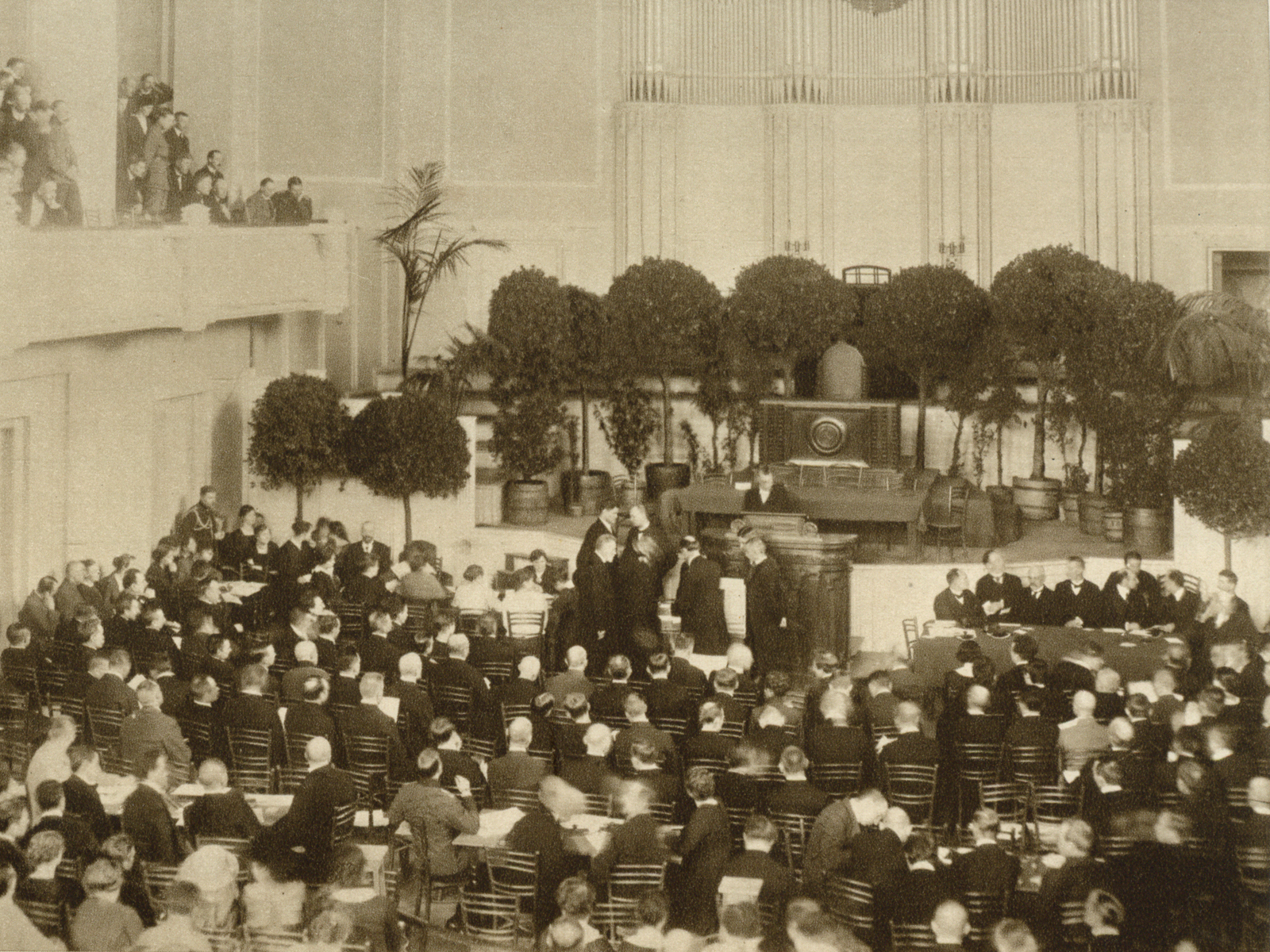|
Jaan Lõo
Jaan Lõo (6 February 1872 Holstre Parish, Viljandi County – 18 February 1939 Tallinn) was an Estonian Supreme Court judge, poet and politician. He was a member of Estonian Constituent Assembly The Estonian Constituent Assembly ( et, Asutav Kogu) was elected on 5–7 April 1919, called by the Estonian Provisional Government during the Estonian War of Independence. Estonian Constituent Assembly elections Activity The 120 members of t .... On 16 December 1919, he resigned his position and he was replaced by Harald Normak. His collection of poems ''Nägemised'', published in 196, contains mainly patriotic poetry and verses of ancient traditions. References {{DEFAULTSORT:Loo, Jaan 1872 births 1939 deaths 20th-century Estonian judges Estonian male poets 20th-century Estonian poets Members of the Estonian Constituent Assembly University of Tartu alumni People from Viljandi Parish ... [...More Info...] [...Related Items...] OR: [Wikipedia] [Google] [Baidu] |
Viljandi County
Viljandi County ( et, Viljandi maakond or ''Viljandimaa''; german: Kreis Fellin) is one of 15 counties of Estonia. It is located in southern Estonia bordering Pärnu, Järva, Jõgeva, Tartu and Valga counties. History Viljandimaa, under the German name of ''Kreis Fellin'', was an important centre of commerce and power in the Middle Ages. Today, there are numerous castle ruins there dating from that time. Soomaa National Park is a national park located partially within Viljandi County, Estonia. Soomaa ("land of bogs") protects 390 km2, and is a Ramsar site of protected wetlands. The park was created in 1993. Retrieved 25 January 2016. County government The |
Tallinn
Tallinn () is the most populous and capital city of Estonia. Situated on a bay in north Estonia, on the shore of the Gulf of Finland of the Baltic Sea, Tallinn has a population of 437,811 (as of 2022) and administratively lies in the Harju ''maakond'' (county). Tallinn is the main financial, industrial, and cultural centre of Estonia. It is located northwest of the country's second largest city Tartu, however only south of Helsinki, Finland, also west of Saint Petersburg, Russia, north of Riga, Latvia, and east of Stockholm, Sweden. From the 13th century until the first half of the 20th century, Tallinn was known in most of the world by variants of its other historical name Reval. Tallinn received Lübeck city rights in 1248,, however the earliest evidence of human population in the area dates back nearly 5,000 years. The medieval indigenous population of what is now Tallinn and northern Estonia was one of the last " pagan" civilisations in Europe to adopt Christianit ... [...More Info...] [...Related Items...] OR: [Wikipedia] [Google] [Baidu] |
Estonia
Estonia, formally the Republic of Estonia, is a country by the Baltic Sea in Northern Europe. It is bordered to the north by the Gulf of Finland across from Finland, to the west by the sea across from Sweden, to the south by Latvia, and to the east by Lake Peipus and Russia. The territory of Estonia consists of the mainland, the larger islands of Saaremaa and Hiiumaa, and over 2,200 other islands and islets on the eastern coast of the Baltic Sea, covering a total area of . The capital city Tallinn and Tartu are the two largest urban areas of the country. The Estonian language is the autochthonous and the official language of Estonia; it is the first language of the majority of its population, as well as the world's second most spoken Finnic language. The land of what is now modern Estonia has been inhabited by '' Homo sapiens'' since at least 9,000 BC. The medieval indigenous population of Estonia was one of the last " pagan" civilisations in Europe to adopt Ch ... [...More Info...] [...Related Items...] OR: [Wikipedia] [Google] [Baidu] |
Supreme Court Of Estonia
The Supreme Court of Estonia ( et, Riigikohus) is the court of last resort in Estonia. It is both a court of cassation and a constitutional court. The courthouse is in Tartu. History During the first independence period (1919-1940) With the First Constitution of Estonia and the Supreme Court Act, the Estonian Constituent Assembly established the Supreme Court of Estonia as a court of cassation on 21 October 1919. The first Justices of the Court were Kaarel Parts (Chief Justice), Paul Beniko, Rein Koemets, Jaan Lõo, Hugo Reiman, Martin Taevere and Peeter Puusepp. The Court first sat in Tartu Town Hall on 14 January 1920. During the centralisation of power in 1935, the Supreme Court was transferred to Tallinn, operating from a specially remodelled building on Wismari Street. When the Court last sat on 31 December 1940, it accepted an order by the government of the Estonian SSR to disband itself as of 1 January 1941. Soviet occupation (1940-1991) The Supreme Court of the Estoni ... [...More Info...] [...Related Items...] OR: [Wikipedia] [Google] [Baidu] |
Estonian Constituent Assembly
The Estonian Constituent Assembly ( et, Asutav Kogu) was elected on 5–7 April 1919, called by the Estonian Provisional Government during the Estonian War of Independence. Estonian Constituent Assembly elections Activity The 120 members of the Constituent Assembly met at the opening session on 23 April 1919, the birthday of the Estonian Parliament and elected the chairman, Social Democrat August Rei. On 7 May the Assembly passed the Public Elementary Schools Act: The principle of compulsory and free primary 6-year elementary school education was established. On 8 May 1919 the Estonian provisional government resigned, and the first fully democratically elected Government of Estonia headed by Prime Minister Otto Strandman (Estonian Labor Party) took office. On 15 May the assembly reaffirmed the Estonian Declaration of Independence, aimed at the international community for recognizing Estonia as an independent state. On 4 June 1919 the Assembly adopted a temporary Constitutio ... [...More Info...] [...Related Items...] OR: [Wikipedia] [Google] [Baidu] |
Harald Normak
Harald Normak (20 December 1890 Kohtla Parish, Virumaa – 14 December 1957 Uppsala, Sweden) was an Estonia Estonia, formally the Republic of Estonia, is a country by the Baltic Sea in Northern Europe. It is bordered to the north by the Gulf of Finland across from Finland, to the west by the sea across from Sweden, to the south by Latvia, an ...n politician. He was a member of Estonian Constituent Assembly. He was a member of the assembly since 17 December 1919. He replaced Jaan Lõo. On 23 January 1920, he resigned his position and he was replaced by Eduard Kübarsepp. References {{DEFAULTSORT:Normak, Harald 1890 births 1957 deaths Members of the Estonian Constituent Assembly ... [...More Info...] [...Related Items...] OR: [Wikipedia] [Google] [Baidu] |
1872 Births
Year 187 ( CLXXXVII) was a common year starting on Sunday (link will display the full calendar) of the Julian calendar. At the time, it was known as the Year of the Consulship of Quintius and Aelianus (or, less frequently, year 940 '' Ab urbe condita''). The denomination 187 for this year has been used since the early medieval period, when the Anno Domini calendar era became the prevalent method in Europe for naming years. Events By place Roman Empire * Septimius Severus marries Julia Domna (age 17), a Syrian princess, at Lugdunum (modern-day Lyon). She is the youngest daughter of high-priest Julius Bassianus – a descendant of the Royal House of Emesa. Her elder sister is Julia Maesa. * Clodius Albinus defeats the Chatti, a highly organized German tribe that controlled the area that includes the Black Forest. By topic Religion * Olympianus succeeds Pertinax as bishop of Byzantium (until 198). Births * Cao Pi, Chinese emperor of the Cao Wei state (d. 226) * G ... [...More Info...] [...Related Items...] OR: [Wikipedia] [Google] [Baidu] |
1939 Deaths
This year also marks the start of the Second World War, the largest and deadliest conflict in human history. Events Below, the events of World War II have the "WWII" prefix. January * January 1 ** Third Reich *** Jews are forbidden to work with Germans. *** The Youth Protection Act was passed on April 30, 1938 and the Working Hours Regulations came into effect. *** The Jews name change decree has gone into effect. ** The rest of the world *** In Spain, it becomes a duty of all young women under 25 to complete compulsory work service for one year. *** First edition of the Vienna New Year's Concert. *** The company of technology and manufacturing scientific instruments Hewlett-Packard, was founded in a garage in Palo Alto, California, by William (Bill) Hewlett and David Packard. This garage is now considered the birthplace of Silicon Valley. *** Sydney, in Australia, records temperature of 45 ˚C, the highest record for the city. *** Philipp Etter took over as Swi ... [...More Info...] [...Related Items...] OR: [Wikipedia] [Google] [Baidu] |
Estonian Male Poets
Estonian may refer to: * Something of, from, or related to Estonia, a country in the Baltic region in northern Europe * Estonians, people from Estonia, or of Estonian descent * Estonian language * Estonian cuisine * Estonian culture See also * * Estonia (other) * Languages of Estonia * List of Estonians This is a list of notable Estonians. Architects * Andres Alver (born 1953) *Dmitri Bruns (1929–2020) * Karl Burman (1882–1965) * Eugen Habermann (1884–1944) *Georg Hellat (1870–1943) *Otto Pius Hippius (1826–1883) * Erich Jacoby (1885� ... {{Disambiguation Language and nationality disambiguation pages ... [...More Info...] [...Related Items...] OR: [Wikipedia] [Google] [Baidu] |
Members Of The Estonian Constituent Assembly
Member may refer to: * Military jury, referred to as "Members" in military jargon * Element (mathematics), an object that belongs to a mathematical set * In object-oriented programming, a member of a class ** Field (computer science), entries in a database ** Member variable, a variable that is associated with a specific object * Limb (anatomy), an appendage of the human or animal body ** Euphemism for penis * Structural component of a truss, connected by nodes * User (computing), a person making use of a computing service, especially on the Internet * Member (geology), a component of a geological formation * Member of parliament * The Members, a British punk rock band * Meronymy, a semantic relationship in linguistics * Church membership, belonging to a local Christian congregation, a Christian denomination and the universal Church * Member, a participant in a club or learned society A learned society (; also learned academy, scholarly society, or academic association) is a ... [...More Info...] [...Related Items...] OR: [Wikipedia] [Google] [Baidu] |



.jpg)